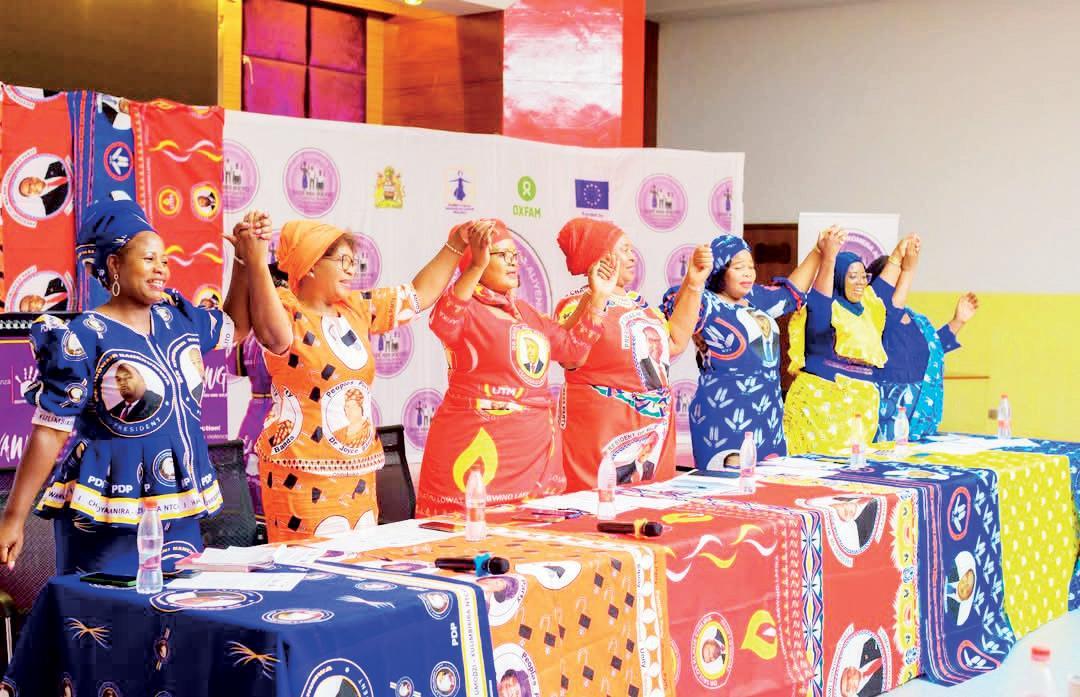By Rebecca Chunjeca
Africa-Press – Malawi. If they use their numbers strategically, Malawi could witness a new era of female leadership like what we have witnessed in Namibia.— Habiba Osman, Executive Secretary for Malawi Human Rights Commission.With just five months until Malawians head to the polls, candidates – men and women alike – are busy posturing themselves for a contest.
The official campaign period is yet to come, but current political activity shows campaign is on the roll already.
As candidate go out to woo voters, one constituency they might ignore at their own peril is that of women.
Reflecting their number being higher than that of men in the national demographics of the national population and housing census of 2018, they are the most registered voters.
According to data from the Malawi Electoral Commission (Mec), out of the 7.1 million people who have registered to vote on September 16, 2025, over 4 million of them are women— constituting 57.2 percent of the total voters’ roll.
Mec’s final phase of voter registration saw over 1.4 million women registering, compared to just over 1 million men who turned up to register.
Overall, 65.4 percent of the expected voters completed the registration process— but women exceeded expectations, registering at 70.4 percent of their projected numbers, while men lagged behind at 59.6 percent.
But what do these numbers mean? Are women just content with voting instead of going for the crunch – the political positions?
KATHEWERA BANDA— The electorate has to believe that women can make good presidentsActivists says while women dominate voter registration, their representation in leadership remains worryingly low.
Executive Director for Women’s Legal Resources Centre (Wolrec) Maggie Kathewera Banda said with such voter numbers and a change of mindset, it would have been possible for Malawi to have a woman president in September.
“The electorate has to believe that women can also make good presidents,” she said.
Kathewera Banda urged political parties to do enough to support female candidates, instead of just seeing them as voters only.
“If political parties do not prioritise women in their structures, we will continue to see male-dominated politics,” she said.
Evidence shows that despite their electoral strength, Malawian women continue to struggle for a seat at the decision-making table.
Here are the facts:
In 2019, women accounted for 55.4 percent of the voters but they won just 20.8 percent of parliamentary seats.
This under-representation has been a persistent issue in Malawi’s elections, according to the records.
In 1994, women made up only 6 percent of MPs. The figure rose to 11 percent in 1999, increased slightly to 13.5 percent in 2004, made a historic lead in 2009 to 22.3 percent.
In the 2014 elections, the figure dropped to 16.6 percent before rising again to 23 percent in the 2019 elections.
Despite their numerical and electoral advantage, women face deep-rooted challenges that hinder their success in politics, the activists say.
Lingalireni Mihowa, Country Director for Oxfam Malawi, said societal attitudes continue to favour male leadership.
“Even female voters often prefer to vote for men because of long-standing gender stereotypes,” she said.
KALIYA—The electoral system makes it difficult for womenWomen’s rights activist Emma Kaliya said many aspiring female politicians struggle because of limited education and financial resources.
These, she said, are crucial for running a successful campaign.
“Elections require money—something male candidates often have in greater supply due to economic structures that favour men,” Kaliya said.
She said electoral system in Malawi is also another barrier.
“The system makes it difficult for women to compete unless political parties actively support them,” she said.
She suggested introduction of gender quota to help level the playing field.
Malawi Human Rights Executive Director Habiba Osman said with more women registered than ever before, this election could be a turning point.
“If they use their numbers strategically, Malawi could witness a new era of female leadership like what we have witnessed in Namibia,” Osman said.
Over the years, activists have been championing the 50:50 campaign whose objective is to enhance women’s participation and representation in local politics and decision-making roles.
It seeks to achieve this through improved individual and collective capacities of women in politics, improved social-cultural and political environment for women in politics in Malawi and reduction of instances of political violence against women aspiring for political positions.
Source: The Times Group
For More News And Analysis About Malawi Follow Africa-Press






